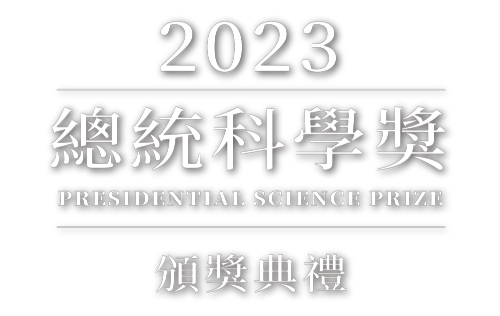PREVIOUS AWARDS
2005 AwardeesAcademician Lou-Chuang Lee
- Article Category: PREVIOUS AWARDS
- Post Date: 2023/08/30
Academician Lou-Chuang Lee's Personal Profiles
Professor Lou-Chuang Lee was born on April 20, 1947. He received a B.S. degree in physics from National Taiwan University in 1969, and M.S. and Ph.D. degrees in physics from the California Institute of Technology in 1972 and 1975 respectively. He specializes in space science and plasma physics. From 1975 to 1995, he performed advanced research at the NASA/Goddard Space Flight Center and served as a professor at the University of Maryland and University of Alaska. Upon returning to Taiwan in 1995, Prof. Lee joined the faculty of Department of Physics at the National Cheng Kung University, and also served as the Dean of the College of Science. He was appointed the chief scientist at National Space Program Office in 1997, and made director of National Space Program Office in 2001. Since that time he has led the science and engineering teams implementing the FORMOSAT-2 and FORMOSAT-3 programs. Due to his outstanding academic achievements, Prof. Lee was elected fellow of the Academia Sinica in 2002, fellow of the Academy of Science for the Developing World (TWAS) in 2006 and member of the International Academy of Astronautics in 2007. He became the president of the National Applied Research Laboratories in 2003 and the President of National Central University in 2006. In 2008, he was appointed as the Minister of National Science Council.
Prof. Lee has received many international as well as national awards, including the Toray Science Foundation Fellow, the Terris Moore Award in Astrophysics, the Outstanding Faculty Performance Award, the Fulbright Grant Award, the Emil Usibelli Distinguished Research Award, the Foundation for the Advancement of Outstanding Scholarship Award, the Ministry of Education's Outstanding Academic Award, and the World Technology Network Award.
Prof. Lee is a well-known astrophysicist. He has published more than 200 scholarly papers in internationally renowned journals as well as three major academic monographs. During his career, Prof. Lee developed several new theories to help explain observed space phenomena. His major research achievements include: (a) the turbulence spectrum of interstellar medium, (b) the cyclotron maser theory for the generation of auroral kilometric radiation, (c) the multiple X-line reconnection model for magnetic flux transfer events, (d) the formation mechanism of solar prominences, (e) a new mechanism for solar coronal heating, and (f) the discovery of "gigantic jets" in the Earth’s upper atmosphere.
In addition to his outstanding contributions in space science, Prof. Lee has also led Taiwan's national space team in implementing two world-class space programs, FORMOSAT-2 and FORMOSAT-3, which are expected to make important contributions to international space research, remote sensing technology, and weather/climate applications.





